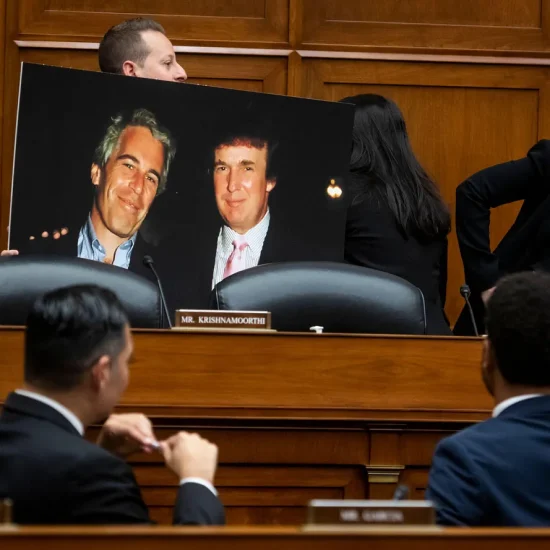
Sen. Josh Hawley (R-MO) recently posted on social media to mark Juneteenth — a federally-recognized holiday marking the emancipation of the final enslaved persons in the U.S. — and was roundly criticized for whitewashing the horror of slavery.

Rodney Kennedy
“Today is a good day to remember: Christianity is the faith and America is the place slavery came to die,” intoned Hawley on Twitter.
Hawley’s connecting Christianity and America as the saviors who destroyed slavery indeed represents a warped sense of history. This is the same revisionist history that many evangelicals have in mind as they attempt to “whitewash” and purify American history of all our national flaws and manifold wickedness. This is not a “new” history; this is old propaganda.
On Juneteenth, of all days, Sen. Hawley tried to give Christianity credit for ending slavery. Is this the kind of American history that conservative revisionists have in mind? Absolutely. Despite the fact that even when slavery ended, its successor Jim Crow continued to oppress African Americans.
Remedial reading may be of benefit to Senator Hawley. I have recommendations. He can read David Blight’s Frederick Douglas: Prophet of Freedom and Race and Reunion: The Civil War in American Memory. Then he should be required to read Race: A Theological Account by Kamron Carter, Democracy in Black by Eddie Glaude, Jr., The Cross and the Lynching Tree by James H. Cone, and Democracy Matters by Cornel West. There will be an examination.
Then perhaps Hawley can read writers like Ta Nehisi Coates, labeled a race “maximalist” by David Brooks. He needs to read Coates’ article for The Atlantic, “The First White President.”
Yet, while we are attempting to help a fellow American move the intellectual meter from “mind-blowingly stupid” to at least average, he should also read Jesús Colón, “How to Know the Puerto Ricans,” in the book A Puerto Rican in New York and Other Sketches, Peter Garnsey’s Ideas of Slavery from Aristotle to Augustine, Ibram X. Kendi’s Stamped from the Beginning, Eduardo Bonilla-Silva’s, Racism Without Racists, Willie James Jennings’ The Christian Imagination and the Origins of Race, and Robin DiAngelo’s article “White People Are Still Raised to be Racially Illiterate. If We Don’t Recognize the System, Our Inaction Will Uphold It.” At least this would introduce the senator to historical realities that his statement ignores, denies, and demeans.

Sen. Josh Hawley, R-Mo., asks questions during a Senate Homeland Security & Governmental Affairs Committee hearing to discuss election security and the 2020 election process on Wednesday, Dec. 16, 2020, on Capitol Hill in Washington. (Greg Nash/Pool via AP)
Hawley lacks the historical perspicuity to grasp the nuances of slavery and its long shadow over every day in American life. Historian David Blight is quite helpful here:
“Three overall visions of Civil War memory collided and combined over time: one, the reconciliationist vision, which took root in the process of dealing with the dead from so many battlefields, prisons, and hospitals and developed in many ways earlier than the history of Reconstruction has allowed us to believe; two, the white supremacist vision, which took many forms early, including terror and violence, locked arms with reconciliationists of many kinds, and by the turn of the century delivered the country a segregated memory of its Civil War on Southern terms; and three, the emancipationist vision, embodied in African Americans’ complex remembrance of their own freedom, in the politics of radical Reconstruction, and in conceptions of the war as the reinvention of the republic and the liberation of blacks to citizenship and Constitutional equality. In the end this is a story of how the forces of reconciliation overwhelmed the emancipationist vision in the national culture, how the inexorable drive for reunion both used and trumped race. But the story does not merely dead-end in the bleakness of the age of segregation; so much of the emancipationist vision persisted in American culture during the early twentieth century, upheld by blacks and a fledgling neo-abolitionist tradition, that it never died a permanent death on the landscape of Civil War memory.”
The promises of the end of slavery were gutted by the horrors of segregation. Ta Nehisi Coates calls obliviousness like Hawley’s “the passive power of whiteness — that bloody heirloom which cannot ensure mastery of all events but can conjure a tailwind for most of them.” America only slowly ended slavery after England, Mexico, France, and Denmark, and even then it still took a Civil War. And it was then another century before civil rights for African Americans were enshrined in law, with a large percentage of American Christians fighting against it every grueling step of the way.
The Christianity that Hawley seems to have in mind is the current fad of idolatry known as Christian Nationalism. There is no connection between the American Christianity that justified slavery and the Christianity that denounces slavery. As Frederick Douglas put it, “I love the pure, peaceable, and impartial Christianity of Christ; I therefore hate the corrupt, slave-holding, women-whipping, cradle-plundering, partial and hypocritical Christianity of this land.”
The truth Senator Hawley refuses to see is that slavery, supported by biblical texts, preached from Christian pulpits, and defended by Christian politicians flourished in the U.S. As Frederick Douglas also said, “Indeed, I can see no reason but the most deceitful one for calling the religion of this land Christianity…” Hawley’s distorted Twitter statement placed alongside this affirmation shows how Douglas had the only truthful historical imagination here. Hawley is imagining a world that never existed and has no place in our past, present, or future.
Rodney Kennedy has his M.Div. from New Orleans Theological Seminary and his Ph.D. in Rhetoric from Louisiana State University. The pastor of 7 Southern Baptist churches over the course of 20 years, he pastored the First Baptist Church of Dayton, Ohio – which is an American Baptist Church – for 13 years. He is currently professor of homiletics at Palmer Theological Seminary, and interim pastor of Emmanuel Friedens Federated Church, Schenectady, New York. His seventh book – Good and Evil in the Garden of Democracy – is now out from Wipf and Stock (Cascades).






